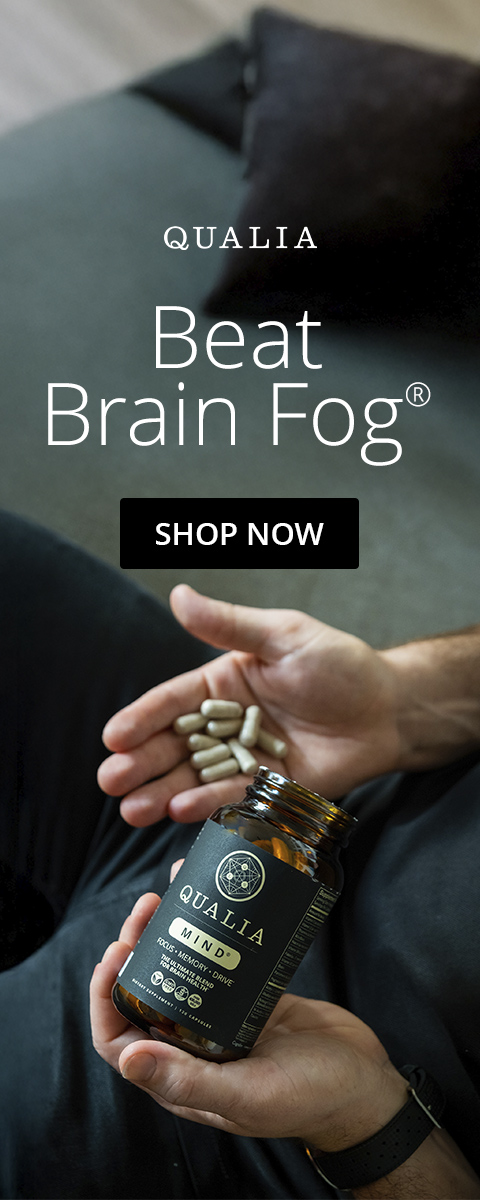In a recent Collective Insights podcast Jim Kwik, renowned brain optimization and accelerated learning expert, sat down with Dr. Greg Kelly to discuss actionable tips for tapping into our brain's maximum capacity. What follows is a summary of the podcast discussion.
Key Takeaways
Limitless Model: A framework emphasizing mindset, motivation, and methods as key factors to unshackle our brain's capabilities.
Personalized Brain Management: The significance of understanding our unique brain type code for optimization of learning, communication, and collaboration.
Brain Optimization Essentials: The role of nutrition, supplements, and nootropics in augmenting cognitive functions and overall brain health.
The Limitless Model: Cultivating a Boundless Mindset
Jim Kwik's Limitless Model serves as a framework for individuals aiming to progress beyond their current mental state. The model adopts a Venn diagram categorizing the human mind into three 'M's: mindset, motivation, and methods, which serve both as tools for self-liberation and identifiers of self-imposed constraints.
“It’s about advancing beyond what you're currently demonstrating or what you believe is possible.” Kwik asserts. The mindset constitutes beliefs about what is possible, personal capability, and what one deserves. Changing the narratives we tell ourselves can lead to profound transformations in our pursuits, as he quotes, “If you fight for your limitations, you get to keep them.”
Brain Types: Personalized Pathways to Mastery
Building on the idea that we all have distinct brain types, Kwik developed a framework to categorize unique learning styles and cognitive preferences, embodied as animal metaphors—Cheetah, Owl, Dolphin, and Elephant. These Brain Type codes guide individuals toward a customized approach for learning and productivity.
Jim Kwik invites listeners to embrace their distinct brain type. Whether you're an action-oriented Cheetah, a logical Owl, a visionary Dolphin, or an empathetic Elephant, Kwik encourages utilizing one's natural cognitive tendencies. By recognizing and working with these traits, one can optimize brain functionality and enhance communication strategies geared toward each type, thus promoting more effective interactions and collaborative efforts.
Fueling the Brain: Nutrition and Nootropics
Kwik stresses the impact of diet on cognitive performance and introduces an engaging mnemonic technique to remember nutrient-packed foods, from avocados to dark chocolate. Recognizing that dietary sources may not provide necessary nutrients, he discusses the potential need for supplementation. Here, the conversation pivots to nootropics—compounds known for supporting cognitive functions like memory and executive functions.
We discussed traditional nootropics like Ginkgo biloba, which supports brain blood flow, to Lion's Mane mushroom that stimulates nerve growth factor production. These substances, known for their cognitive-enhancing properties, offer a potential benefit to individuals seeking to maintain their brain health and sharpen cognitive functions.
At its core, the discussion centered on empowered learning and cognitive enhancement. It's evident that concerted efforts across mindset, motivation, and methodologies, enhanced by a deep understanding of one's distinct brain type and the thoughtful integration of brain-nourishing foods and nootropics, are the cornerstones of unlocking our brain's full potential. You can hear the conversation in its entirety, here.
Related Links:
- Jim Kwik's Podcast: Quick Brain podcast
- Jim Kwik Instagram
- Limitless Book
- Brain Types Assessment: My Brain Animal - A short assessment to help understand your dominant brain type for optimized learning.
- Brain Nutrition Resource: Brain Nutrition - A comprehensive guide to foods, supplements, and nootropics beneficial for cognitive health.
 Written by
Written by






